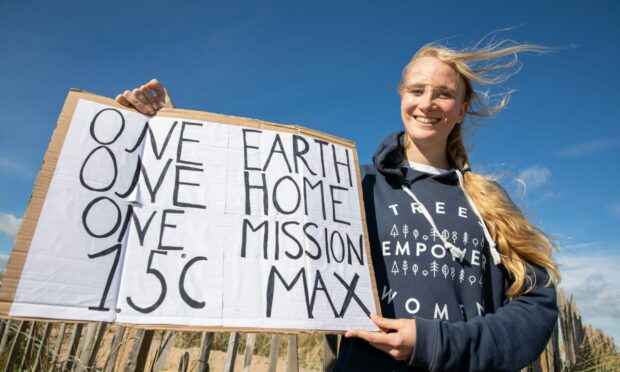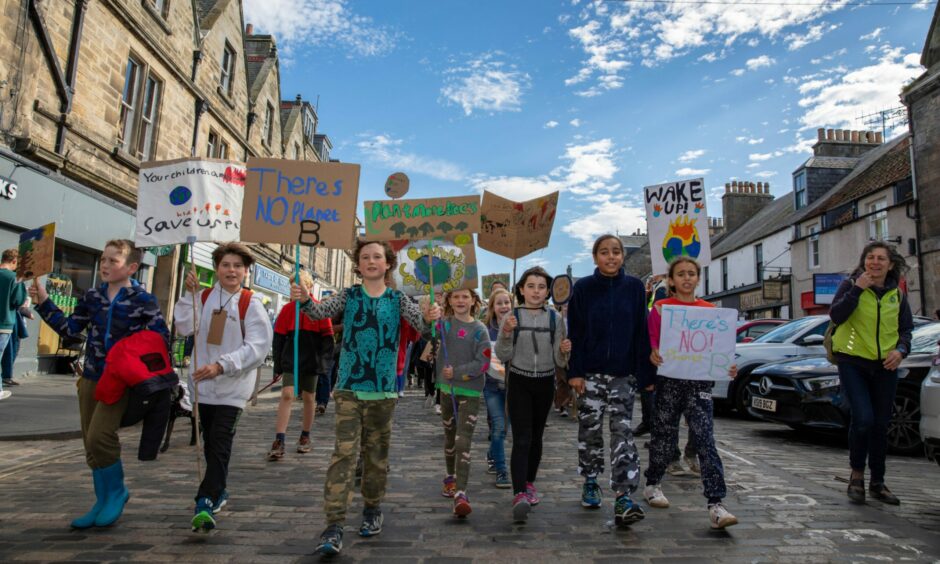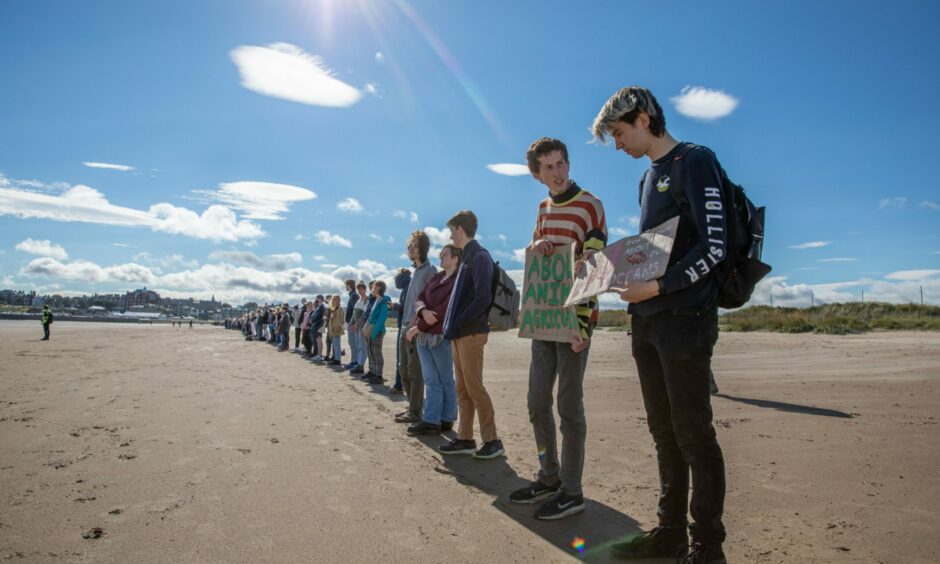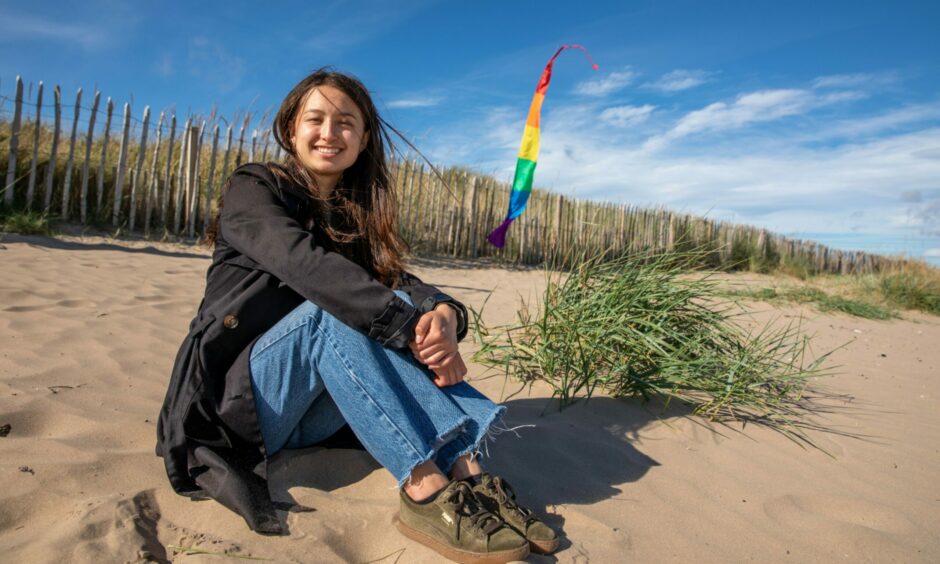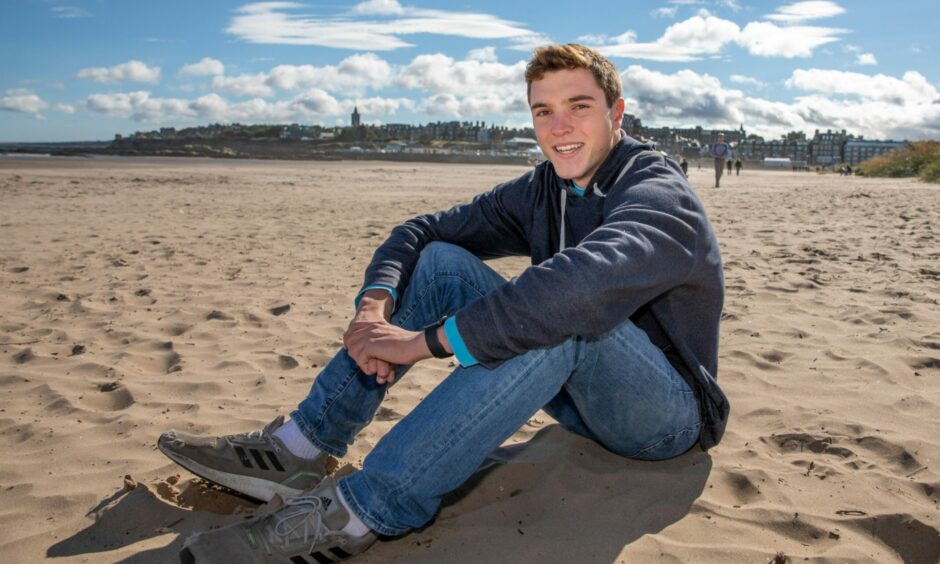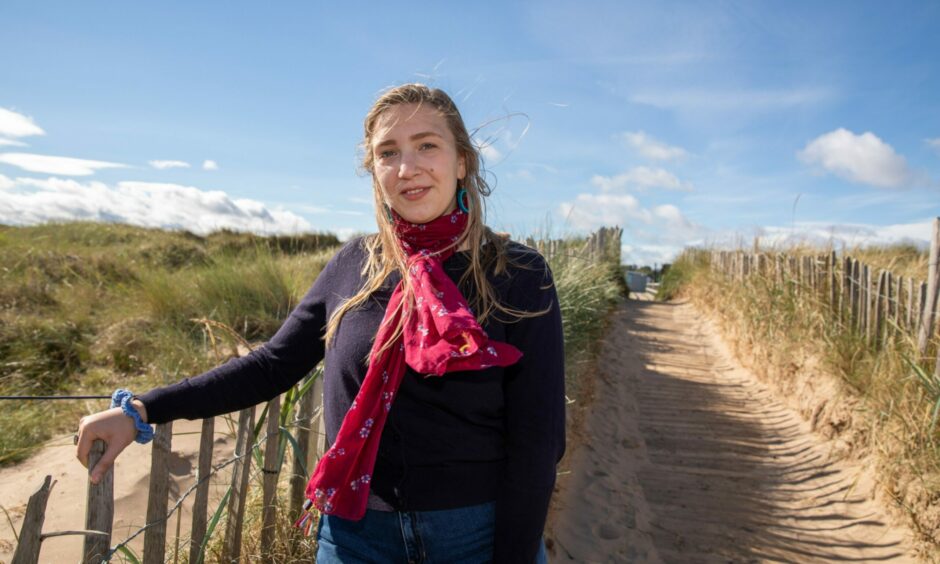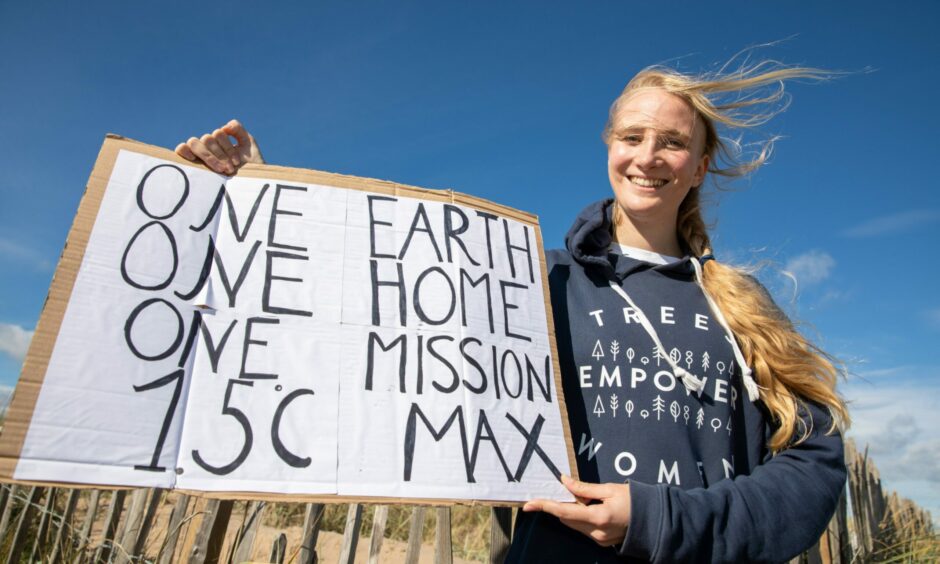Their tomorrow is not certain.
That is the view of students and pupils in St Andrews who took part in a climate strike, calling on action from world leaders ahead of global climate talks COP26.
Marching through the town to chants of “climate justice” and “keep it in the soil”, the crowd was made mainly of young people, but there was a smattering of older protestors with them.
Carrying placards that read “the Titanic would be fine in 2021, they’ve [icebergs] all melted” and the ubiquitous “there is no planet B”, the mainly young crowd stopped traffic on their way to the beach.
Drivers tooted their horns and applauded the strikers, provoking cheers from the young people.
The crowd, estimated by organisers as being more than a 1,000, lined up on the beach after speeches from Willie Rennie and others. They stood in silence while bagpipes played.
St Leonards pupil Keyuri Ade was among the speakers.
She said: “It’s a shame that we have to do this again. How many times are we going to have to do this?
“They [world leaders] keep talking, but we end up with no action.
“Our tomorrow is not certain.”
The strike follows a similar event in 2019.
We met some of the strikers who are demanding change.
Heather Fortune
Heather grew up in North Berwick and became aware of the climate crisis at school.
“When I was younger I was very interested in nature, but whenever people talked about climate change I feel like it was a very distant issue — even in the curriculum in school.”
In her final year, the Friday school strikes — which gained worldwide attention thanks to Greta Thunberg — gathered momentum.
“That was when it really hit me that we needed to something now,” she said.
The third-year biology student, specialising in ecology and conservation, said her family has always been climate-minded.
“We don’t own a car in my family, so we walk a lot to places. We do live reasonably sustainably.”
The 19-year old has recently cut down on meat consumption and on fashion purchases.
“If I buy clothes now, they tend to be second-hand.”
She also helps run an eco-anxiety cafe in St Andrews.
“We’ve been noticing a lot more students have been worrying about climate change.
“We’ve been trying to run these as a conversation where people can talk about it in a safe space.”
Monty Jones
Monty was destined to study at St Andrews.
His English father and American mother met in the town and his grandfather studied medicine there.
The 21-year old grew up in New Hampshire in the USA and is in his fourth year of a chemistry course at St Andrews University.
It was his birthday being in December that made him realise the climate was changing before his very eyes.
Going out skiing was a guarantee on his birthday in his younger years, but over time that has changed.
“It’s a small thing, but one of my favourite things about my birthday is that I’d always have snow. It was always gorgeous.
“But as I entered my teenage years, I noticed that is wasn’t snowing. Christmas became more brown, kind of rainy.
“The winter kept on getting pushed back. That’s where the realisation hit me.”
Monty’s family built a sustainable home about 12 years ago, running on geothermal energy.
“It’s quite a modern, low-energy intensive house.”
Other actions Monty takes is being vegetarian and getting a full life out of clothes before buying new outfits.
“I don’t stop wearing something until there a visibly holes in it.”
He hopes to make his voice known at COP26 and join a protest in Glasgow.
“It’s on the backyard, so it would be an awesome opportunity.”
Sofie Brøgger
Danish Sofie grew up on a farm, which has framed her life and thoughts about the environment.
She studies sustainable development and international relations at St Andrews University and is in her second year.
The 22-year old said: “I very distinctly remember the biology class when we were introduced to the concept of sustainability and it very much resonated with me because I come from a farming background.
“I had some thoughts around how farming convention actually influences nature and how much of a negative impact we have.”
From there, she started researching organic farming.
She also got some “hands on” experience with permaculture farming while spending some school years in India.
However, differing views have caused some friction with her family.
“They do conventual farming, so monoculture, big fields, tractors, pesticides.
“I am really interested in regenerative farming — so permaculture and forest gardens. When you try to be part of the ecosystem and learn from nature rather than fight against nature when you grow.
“I would have long discussions with my father and my brother is studying to become a farmer.
“By now we’ve sort of accepted that we have different view points. I think, especially for my dad, this is his life. His whole income and identity is coupled to this type of farming.
“For him to change now is difficult and I am not expecting that from him.”
Léa Weimann
One of the key organisers of the event, and the one in 2019, Léa recently graduated from St Andrews University.
She is now doing a LLM degree in global environment and climate change law at Edinburgh University.
The 23-year old is originally from the Bavaria region of Germany and studied sustainable development and international relations at St Andrews University.
She spent a her teen years in Cape Town, South Africa, during the notorious water-drought, which saw restrictions placed on how much water households could use.
It brought home the effects a changing environment can have, but Léa initially became engaged in the climate while reading a book — which she does not remember the English title of — in her teens.
The fictional book told the story of a Japanese girl who stood up for dolphins, left starving due to human overfishing.
“It really emotional, but it was also inspiring. Sure it was just a book, but she was speaking up, she was doing something.”
During her time in St Andrews organising a climate strike, Léa self-published a book of poems, Dear Earth.
She said: “I was reflecting and writing a lot about what is happening in the world, what kind of change do we need?
“Somehow that ended up in poetry form.”
Léa travels from Germany to Scotland by train as opposed to flying.
“Before the pandemic I did that a couple of times. It was interesting because I shared that and there was so many people who then got inspired by that.
“It goes to show… that other people do see them a go ‘oh, I am inspired by them in some way’.
“Realising that we all have agency and we can all do something is very empowering.”
Léa says she used to be shy, but climate change “made me outspoken” because of the seriousness of the situation.
Léa questions whether Cop26 is the most effective means to see change, given the previous 25 global summits have seen little action.
Nevertheless, she has a word of warning for world leaders ahead of the Glasgow event.
“We will be watching.”
